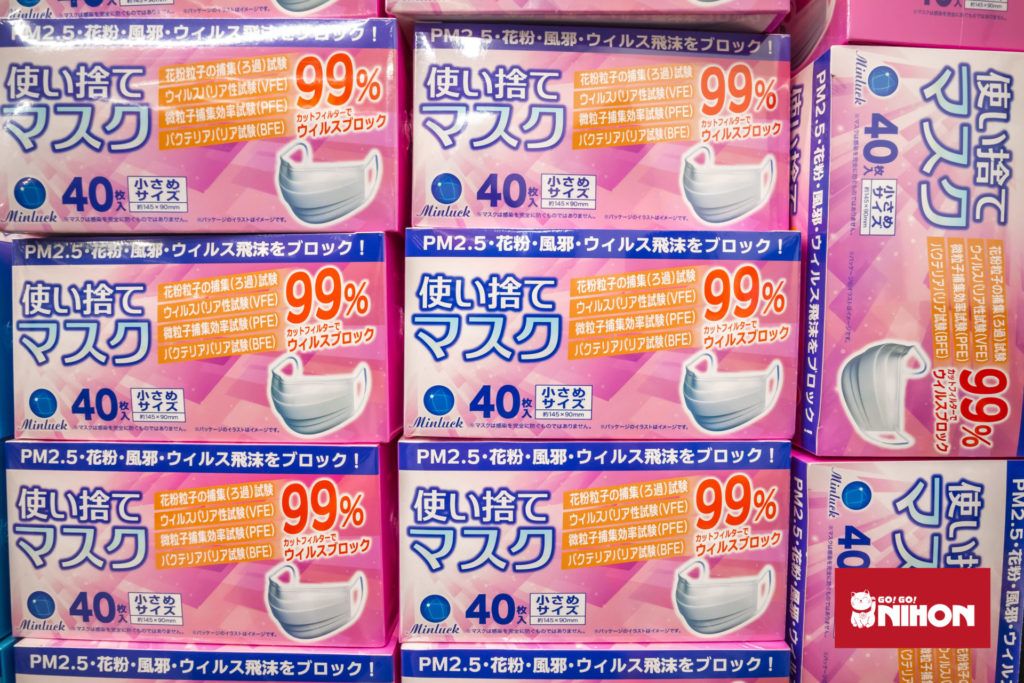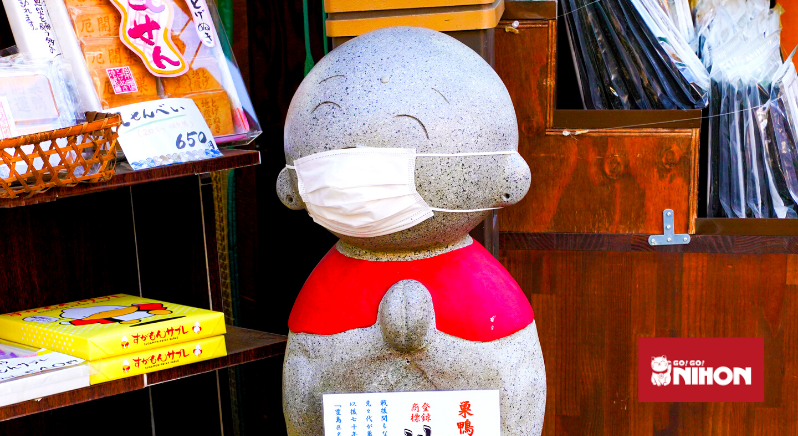Head to Japan and you’ll notice that many Japanese people wear face masks. Even before the time of COVID-19, it wasn’t unusual to see people donning white masks while waiting for their trains, or out with their friends.
Not only relegated to flu season or fears of catching colds, but masks have also long been a regular part of Japanese society. They’ve evolved to carry a wider definition, some not having anything to do with health reasons at all. Why then, are there so many masks in Japan? Let’s take a look at why they’re so common.

Five reasons behind the mask
1. Health
The first and foremost reason that Japanese people wear face masks is health. Oftentimes, it’s to prevent one’s own germs or sickness from spreading in public places; a critical point in the often extremely densely populated cities of Japan.
With so many people packed into a small area, the risk of contagion is much higher. Japanese people are taught the importance of prevention at an early age. When I worked in the public school system, it was all over the walls and bulletin boards as posters advocating personal hygiene. Students were made to wear masks when they participated in serving lunch to their peers and to wear a mask at any time if they felt they might be sick, so as not to pass any illness on.
Public toilets encourage people to maintain a high level of cleanliness in order to respect themselves and others. Not doing so is considered disrespectful—and you don’t want to be disrespectful in Japan! It’s therefore more a point of making sure others don’t get sick. Makes sense, right?
Read more:
* The Japanese education system: Similarities and unique differences to the Western world
* Dealing with hay fever in Japan
* Sick in Japan: Prepare with this list of vocab and phrases
2. Dust and pollen
Aside from illnesses, masks are a good defence against dust and pollen, especially in spring. Masks filter out a large part of pollen particles and this is especially important for those suffering from asthma or pollen allergies.
Particulate matter 2.5, or PM 2.5, is the dust that causes pollution. It’s 2.5 micrometres. That’s small enough to sit in your body and cause diminished lung and heart function, asthma, and all kinds of complications. It comes from industrialisation: coal, vehicles, chemical processes. With a proper mask, a majority of PM 2.5 can be safely filtered. Japanese morning news shows usually have a PM 2.5 rating for the day, warning everyone to wear masks on high pollution days.

3. Covering up
Some Japanese people choose to wear masks to hide any physical imperfections they may have, or on days they just don’t want to use make-up. Masks cover hard-to-hide situations like pimples, zits, or scars. Masks are an easy quick fix when you just want to cover yourself up for the day.
4. Fashion
It may seem a bit of a mystery to Westerners, but masks as fashion have become a major part of the Japanese world. A recent 2011 poll by Japanese news site News Post Seven surveyed 100 people in Tokyo and learned that 30% of Japanese people wear masks for reasons not having to do with sickness. Originally seen as embarrassing and only to be worn if absolutely necessary, modern masks are now designed in a variety of colors and shapes to fit fashion trends. 3-D masks (立体 マ ス ク rittai masuku) that protrude and conform to the face are both functional and aesthetically pleasing.
There are pink masks for the Lolita girl subculture, studded black ones for metal fans, anime print masks, the list goes on. Many say the mask gives them a mysterious look, drawing in attention as they walk down the busy streets. Others say it hides their mouth, which for them is a good thing. Whatever the case, more and more young people are using masks for everyday fashion reasons. Come over and walk around the cities. You’ll see for yourself!
5. Social anxiety
On a more personal note, some Japanese people wear masks as a way to add a degree of separation between society and themselves. Japan has a reserved culture that’s very conscious of the judgement of others, those who are shy and lacking in self-esteem sometimes wear masks to hide from the bustling world.
Not reserved solely to prevent the spread of disease, masks have made their way into the Japanese mainstream and are here to stay. It may seem quite different from the standards of health and fashion to the Western world, but it works over here!
Follow our Go! Go! Nihon blog if you want to know more about Japanese culture!













